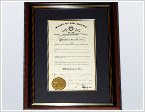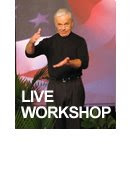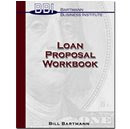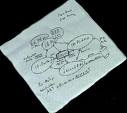Publicity is a powerful tool for a business to get their message out to their customers. Unlike advertising public relations is inexpensive; quite often, it’s free; and it has a greater impact. Publicity has greater longevity where advertising is only remembered for a short time. Publicity reaches a wider audience and because it is not viewed as advertising, it has a greater credibility factor; it is newsworthy.
Here are 9 steps to creating an effective public relations campaign:
Your Positioning Statement – This statement will provide a clear image as to who you are and what you are about; this is the message you want to convey to the community.
Define your Objectives – Do you wish to accomplish fame or fortune? Are you just trying to get your name out there or is your publicity tied to money?
Define your Customer – Pick the right media to be sure you reach the right audience.
Identify the Target Media – To impact your customer; what do they watch, read and think?
Story Angle – Be considerate of the point of view of the producers and editors; present a story they can work into their paper, radio show or news program. Present something interesting, like a comment on current events that are big topics in the media.
Become an Authority – A little credibility goes a long way; become known as being an expert in your field. Write a book; it doesn’t have to be a novel; it can be short, or you can write an article.
Press Kit – This document is valuable to the editor/producer; it helps them understand who you are; it is valuable to you as it will help them decide if they can give you air time. Include in your press kit your story angle and why you are an authority. You also need a short bio about yourself and an introduction (what you want the host to say when they introduce you to the audience). Include 10 questions you want them to ask you and give your answers. Establish your credentials; include previous interviews or refer to articles that have been published about you in the past. Remember, you are competing for air time and you want to make the best of it by conveying your message. Your press kit helps the editors/producers do their job and fit you in to the schedule. You want to show them that you will do a great interview; you will make them look good while you make yourself look good.
Make the Pitch – Call the editor, producer, station manager or the main office. When they answer, make your pitch in two sentences; a compelling lead sentence followed by one which establishes your credibility; why you are an authority. At this point, if you are just speaking to a receptionist, you will be passed through to someone else. Repeat your pitch; if they respond positively, thank them for their interest and ask them whose attention to forward your press kit to, and how to get it to them. Be professional, don’t take up a lot of their time; recognize that they are very busy and provide them the material they need so they can review it when it fits into their schedule.
Follow up – You’ve introduced yourself, you know where to send your press kit; now, ask when would be a good time to call and follow up. Develop a relationship with the person you’re speaking to; use their name when you’re speaking to them. Send a hand-written thank you note to them, thanking them for their time and looking forward to speaking with them on whatever day and time they say is good to follow up.
A very important thing to know before you make an initial contact with any media is that they all have deadlines and things become very frantic as they approach their deadline. Be sure to know their deadline; call ahead and ask for this critical information; timing is everything. You want to make your first impression at a good time for them to ensure you a good chance for air time. If you call them minutes before a deadline, they will know that you are not experienced.
All media needs to fill their air time with quality; they want to make you look good, so they look good. Ratings are everything to them as publicity is everything to you. By approaching them at a convenient time, prepared with a press kit, you are helping them put together an interview and ask only questions you will be able to answer professionally.
Bill Bartmann has been interviewed, published and featured in many magazines, TV shows and radio shows. Bill Bartmann’s online business course has helped many entrepreneurs develop publicity and become known as an authority in their field. Find out more about Bill Bartmann’s Billionaire Business Systems online course at http://www.billionaireu.com/
Tuesday, March 17, 2009
Bill Bartmann Public Relations Tips: How to Create a Publicity Campaign
Subscribe to:
Post Comments (Atom)









No comments:
Post a Comment